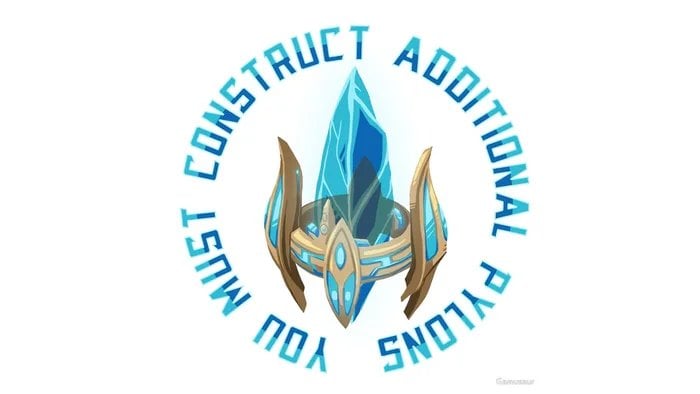I don’t believe free will is real. I’m not a deep physics person (and relatively bad at math), but with my undergrad understanding of chemistry, classical mechanics, and electromagnetism, it seems most rational that we are creatures entirely controlled by our environments and what we ingest and inhale.
I’m not deeply familiar with chaos theory, but at a high level understand it to be that there’s just too many variables for us to model, with current technology, today. To me that screams “god of the gaps” fallacy and implies that eventually we WILL have sufficiently powerful systems to accurately model at that scale…and there goes chaos theory.
So I’m asking you guys, fellow Lemmings, what are some arguments to causality / hard determinism, that are rooted entirely in physics and mechanics, that would give any credit to the idea that free will is real?
Please leave philosophical and religious arguments at the door.
I have a theoretical degree in nuclear physics, and it seems to me that sub-atomic scale events like quantum tunneling suggest that reality is neither fully determined nor fully chaotic, but something in between: probabilistic. Whether we can consciously affect the probabilities of our own actions remains an open question, but we can at least say that causality is not the whole picture.
Do you have a degree in theoretical physics, or do you theoretical have a degree. ;)
I’m a theoretical theoretical physicist. That’s double the theory.
I am Melllvar. Reader of the books! Knower of the theories!
Go back to work, Fantastic, you have a power plant to run.
One argument that might be made is that inconsistencies at the quantum level create an element of randomness that, while miniscule, could create massive cascading butterfly effects over the course of a large enough timespan. Whether those inconsistencies are enough to make more than a minimal difference in a single given lifespan is debatable at best, and the entire idea could be debunked if quantum physics was proven to be deterministic.
However, as it stands, we don’t have accurate methods of predicting quantum behavior.
While quantum mechanics certainly gives random jumps, by no means is anything in control of those random processes (otherwise, they wouldn’t be random)
So, even though the universe may not be fundamentally deterministic, that doesn’t mean free will exists
Removed by mod
deleted by creator
You don’t need a hidden variable for determinism though. Multiple worlds theory has no hidden variables but also no non-deterministic processes.
Free will is tricky, but there’s interpretations of quantum mechanics that aren’t deterministic. (Although multiple worlds QM is deterministic!)
That’s it. Everything else in physics supports determinism. The fundamental physics so far even conserves information/can be traced (CP-inverted) backwards.
CP symmetry has been experimentally measured to be violated. What we still believe is that our world is invariant under CPT symmetry.
Yes. As I understand it, to preserve CPT during a T violation, you have to invert (break) CP, but it can be done.
So, you could theoretically make a kaon plasma with weird unidirectional (and so T-violating) non-thermodynamic behavior if you had a strong enough box, but in the process it would inevitably accumulate handedness and electric charge in a way that preserves information.
Yeah, when writing this I sort of had the notion that any argument against hard determinism using quantum mechanics would instead 1) actually prove multiverse theory, and 2) therefore still prove in favor of determinism.
Quantum Mechanics’ hard indeterminism doesn’t prove the multiverse interpretation, it’s just one of several potential explanations for the randomness we see.
Also not very educated on this, but just throwing out what i thought was the outline here:
- Tiny differences in position or speed can lead to drastically different outcomes https://en.m.wikipedia.org/wiki/Chaos_theory
- We can only know position or speed https://en.m.wikipedia.org/wiki/Uncertainty_principle Thus, predicting the future cannot reach 100% accuracy.
If this means that we might have free will i cant say, but if the world is wholly deterministic, the above at least underlines our lack of ability to predict it.
Regarding god of the gaps, annoyingly, the claim here is actually that we ”know” that we cant know:
”Thus, the uncertainty principle actually states a fundamental property of quantum systems and is not a statement about the observational success of current technology.”
Of course, only until falsified - field is always changing: https://www.scientificamerican.com/article/common-interpretation-of-heisenbergs-uncertainty-principle-is-proven-false/
carefully leaves his philosophical hard determinism at the door.
Well, I’d better learn a thing or two
Removed by mod
That’s a good argument. It reminds me of the idea of free will as a necessary illusion. Something that us fundamentally not true, but without which societies can’t operate.
Removed by mod
I’m trying to patch together my conception of free will and determinism to sum it up here in answer, but it’s full of holes. Basically it goes like this. Determinism is the rule of nature and, of course, mankind. Free will doesn’t exist. Some measure of freedom and emancipation, on the other hand, do exist. It’s hard to sum it up. Basically, very close to a spinozist stance, just with more holes and gaps. But I’ll stop here since the OP specifically asked to leave philosophical perspectives at the door.
All I know is that this post makes me want to watch Devs again. OP, if you haven’t seen it, check it out - one season miniseries about exactly this
Ohh thank you! Is missed this one - looking forward to it
I’ll have to check it out
Thanks for this recommendation. I’m going to have to watch it.
Slightly off topic, but the god-of-the-gaps has plenty of space in maths alone. The Incompleteness theorem by Goedel shows that in any mathematical system there will be unprovable truths.
I have no idea how to map that onto free will.
Yeah, I’ve thought about this a little bit but again my math isn’t so strong.
I guess approaching this more from computer science (something I’m more familiar with) you could compare with stuff like the NP Hard class of problems. And thus I offer that unproveable does not mean “wrong”. We generally “know” that P=NP is wrong but we cannot prove it only because we lack omniscience. Us lacking the information (in the physics sense of the word i.e. Hawking radiation) doesn’t mean the information isn’t there to be quantified.
The double-rod pendulum is one of the simplest dynamical systems with chaotic solutions. …from Wikipedia
This system is very simple yet even with initial conditions varying by (less than) Planck’s time or Planck’s length, theoretical resulting behavior changes after a few cycle.
Physical determinism says that there cannot be creation of (new) information yet this system does exactly that.Removed by mod
And it would be unpredictable too. Despite a perfect, zero-fuzziness Newtonian model determining the pendulum’s behavior, it would be impossible to predict the blinking of the light.
Wait really? How?
Removed by mod
TL;DR: Tiny differences in input become huge differences in output in a chaotic system
You’re missing a “can” there. Tiny differences in input can become huge differences in output in a chaotic system. (Infinitely) many chaotic systems are structurally stable. For example consider systems that have the Anosov property.
Removed by mod
Hi @intensely_human
You are the only one here who gets it easily even though I didn’t say much. Also in this tread I’m now up to 8 levels’ comments with @grabyourmotherskeys but we are getting nowhere & I am quite feedup. So if you could do something here I would appreciate.Thanks
Here’s the thing. At what point does the causal chain get interrupted, free will kick in, and then the old causal chain fires back up? Because that’s what arguments like yours are implying.
The response is always that I don’t understand the theory you have put forward. I’ll grant that.
If the proof free will is tied to a seemingly stochastic system how is that “free will”. If I replaced your decision making with a random number generator would that be free will?
I sincerely hope you will engage with me here.
To be perfectly clear, my view is that we do not have free will but our limited set of information makes it seem like we do and so it is rational to continue on despite this. Put another way, I know the latest Mission Impossible movie was made months before I saw it, and that the outcome was predetermined, but wow, what a ride.
I’m glad you’re enjoying this topic as much as I am
It’s something I think about constantly, whether I want to or not! ;)
At what point does the causal chain get interrupted ( … ?)
The system is diverging at every point in time :
In chaotic systems, the uncertainty in a forecast increases exponentially with elapsed time. (… same article from Wikipedia)
I believe one has to see this before being able to apply it to free will explanations.
So, at what point is your personal decision making controlling the divergence so that it reflects your will? That is what I am asking.
at what point ( … ? )
Before answering this I need to know if you get the basics : what do you understand so far ? About chaotic systems ? About their variable rate of exponential divergence ? About their “liberty” ? About the fact we have such systems in us, only far more complex ?
And beyond any explanations, if you came to know we have free will, how could we stand the shame and guilt of not doing enough ?
You can’t answer the question.
It’s something I think about constantly, whether I want to or not! ;)
When I was young I was in that situation, with those same questions. But I was lucky : I had the right science and the right IQ and I found the answers. You are now thirsty and I gave you some salt ; if you are too blind to see it or too arrogant, bad for you, so i will not come back to this.
Goodbye.
You still haven’t answered the question and have made at least a couple of inferences about me that aren’t really accurate.
Anyway, people say it you can’t explain it you don’t understand it
Edit: sorry, wrong thread. I would still say you are making lot of assumptions.
How old do you think I am? Let’s start with that. :)
I’m far from knowledgeable about this, but the only thing I’m aware of that might disrupt determinism is quantum mechanics. Something about particles at that level not having set values until they are observed, making them truly random. I have no clue how that could lead to free will. We still have no control over it. It’s more like they are the base that everything else is determined off of.
It controls us, so the randomness has free will, and since the randomness is a part of us, we have free will
We know cause and effect exist in the universe. We can use this to gain control of a lot of things in our world: for instance, when I push the letter “A” on my touchscreen, the letter “A” appears on my screen due to these cause/effect systems we have set up.
However, we know that the universe is not entirely describable via cause and effect. Heisenberg’s Uncertainty Principle precludes us from fully observing all aspects of a quantum system, Gödel’s Incompleteness Theorem shows that our knowledge of the universe will always be incomplete, and Schrödinger’s Cat shows us the absurdity of trying to make concrete claims about observed phenomena using probabilistic models.
If the universe was purely deterministic and we were theoretically able to gain all knowledge of it, there would not be free will. But this is not the universe we live in. The universe we live in is one where:
- Probability exists, so we cannot fully predict the future state of events even with perfect knowledge (i.e. Schrödinger can never gain enough knowledge to predict whether the cat is alive or dead before opening the box, because the event is fully probabilistic.)
- There are aspects of the universe we cannot fully observe, because by focusing on some aspects we must filter out others, so observation will never be fully reliable.
- Regardless of how much we learn, there will always be knowledge we cannot fully categorize.
If events in the universe were fully deterministic, then free will would be an illusion, because everything could be traced to an earlier set of causes, and decisions would not actually exist. If events in the universe were random, free will would have no meaning, because decisions would be arbitrary.
But we live in a universe where things are not immutable, but things are not equally likely. I can roll a fair set of dice for randomness, or I can weight them to create an uneven probability, or I can select a number to eliminate probability altogether. And we all make decisions with limited observations using incomplete knowledge that will only have a partial effect to affect the probabilities of future events. And that means we shape events without controlling them, so all of our decisions have meaning. We can also tell objectively based on observations that some decisions are better than others, while at the same time conceding that no decision is 100% objectively right or wrong.
And that, my friend, is free will.
Sensitive dependence on initial conditions. Time is kind of an iterative equasion so we can predict something to an extent but because we don’t no the initial conditions to an infinite degree there will always be chaos. That’s where the freedom is. As in, it’s both. There is deterministic (you didn’t choose where you were born, your economic status) but with those initial conditions you can make choices etc.
The very concept of the Self, presumably the director of free will, in context, is under threat. Eastern philosophies has held this position for centuries - now science seems like the idea :
https://bigthink.com/the-well/eastern-philosophy-neuroscience-no-self/
I don’t suppose any of you meditate by any chance ?








